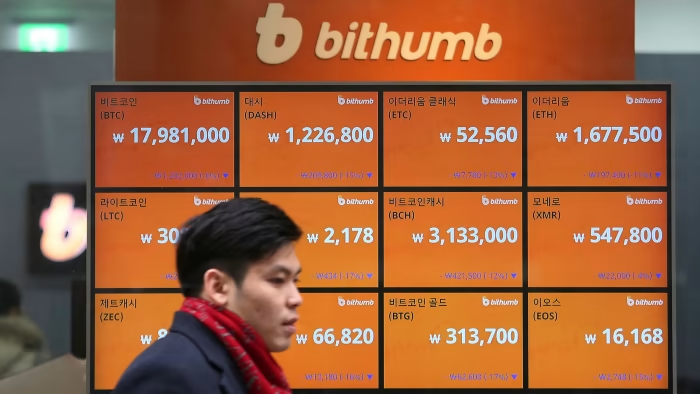South Korea Taxes on Crypto: Latest Delays and What It Means for Investors
Wondering about the latest on South Korea taxes on crypto? The country has repeatedly delayed a 20% tax on cryptocurrency profits, now set for 2027 instead of 2023. This article dives into why these delays happened, the current rules, and how this impacts investors.
Key Takeaways
- South Korea’s cryptocurrency profit tax implementation has been delayed to 2027, increasing uncertainty for investors amid a rapidly evolving market.
- The government is prioritizing a balanced approach to regulation, aiming to protect investor interests while fostering market growth and innovation in the cryptocurrency sector.
- Bipartisan political support for delaying the tax reflects concerns about maintaining market stability and the potential impact on retail investors, who significantly influence trading volumes.
South Korea Taxes on Crypto: Latest Delays and What It Means for Investors

South Korea’s cryptocurrency profit tax, set at 20%, has been a topic of heated debate and frequent delays. Initially approved in 2020, the tax was scheduled to take effect in 2023 but has since been postponed multiple times. The latest delay pushes the implementation to 2027, a decision influenced by various factors, including political dynamics and market volatility.
The repeated delays have created a sense of uncertainty among investors, who are left wondering about the future regulatory landscape. The government’s cautious approach aims to avoid disrupting the booming cryptocurrency market, which has seen significant growth in recent years. This uncertainty, however, has also led to concerns about the long-term stability and attractiveness of the South Korean market for cryptocurrency investments.
Although frustrating for some, these delays can be viewed as strategic, aligning regulatory measures with market realities. The government’s decision acknowledges the need to balance investor sentiment with market stability, ensuring that the eventual tax does not stifle cryptocurrency market growth and innovation.
Introduction
Initially scheduled to start in 2021, South Korea’s cryptocurrency tax faced significant opposition and concerns over its impact on investor participation. These issues led to multiple postponements—to 2023, then 2025, and now 2027—raising investor concerns about the regulatory landscape and potential impacts on their investments.
This blog post aims to provide a comprehensive guide to the current status of cryptocurrency taxation in South Korea, the reasons behind the delays, and what this means for investors. We will explore the regulatory framework, compliance requirements for crypto exchanges, and the impact on retail investors and market dynamics.
Gaining insight into these elements will help investors navigate the complex and evolving landscape of cryptocurrency regulation in South Korea.
Current Taxation Status
South Korea’s current cryptocurrency tax regime is set at a 20% rate on profits exceeding 2.5 million KRW. Initially approved in 2020, the tax was meant to be enforced by 2023, but it has faced multiple delays. The uncertainty surrounding the implementation of this tax has created a challenging environment for investors who are trying to plan their strategies amidst the changing timelines.
Despite the approval of the tax, its enforcement has been repeatedly pushed back, now projected to begin in 2027 instead of 2025. These delays are partly due to concerns about the market’s readiness and the potential negative impacts on investor sentiment and market stability. As a result, investors are left in a state of limbo, unsure of when and how the tax will ultimately be implemented.
Reasons for Delay
One of the significant reasons for the delays in implementing the cryptocurrency tax in South Korea is the apprehension over its potential negative effects on investor sentiment. The ruling party has argued that a hasty introduction of the tax could deter investors and harm the local cryptocurrency market. This concern is particularly relevant given the high volatility of the crypto market and the need for a better understanding of its dynamics.
Additionally, the adequacy of the current tax infrastructure has been a major concern. The government has recognized that the existing systems may not be fully equipped to handle the complexities of crypto taxation, leading to further delays. This delay is also seen as a reaction to the increasing number of South Koreans involved in cryptocurrency trading, estimated at nearly 10 million.
The postponement is intended to allow the government to address these industry concerns and better prepare for eventual taxation. By delaying the rollout, South Korea delays aims to create a robust taxation framework that can effectively manage the unique challenges posed by the crypto market. This approach reflects a strategic decision to balance regulatory needs with market realities, ensuring that the tax does not stifle innovation or drive investors away.
The government’s decision to delay the tax implementation also reflects feedback from industry stakeholders who have raised concerns about its impact on the market. Addressing these concerns aims to create a more stable, investor-friendly environment, supporting the ongoing growth and development of the cryptocurrency market.
New Timeline for Implementation
The new timeline for the implementation of South Korea’s cryptocurrency tax is now set for 2027. Initially, the 20% tax on cryptocurrency gains was set to be implemented in 2023, but it faced several delays due to concerns about market readiness and the adequacy of the tax infrastructure. The continuous postponements have led to a projected start date of 2027, raising concerns among investors about the future regulatory landscape.
While intended to create a more robust taxation framework, these delays have generated uncertainty for investors. The extended timeline allows the government to address various challenges and concerns but also means investors face an uncertain regulatory environment for several more years.
Regulatory Framework Governing Crypto Taxes

The regulatory framework governing crypto taxes in South Korea is overseen by the Financial Services Commission (FSC), which plays a significant role in ensuring compliance and implementing regulations. The FSC’s responsibilities include developing policies, overseeing the implementation of cryptocurrency taxation, and ensuring that crypto exchanges adhere to the relevant laws. This regulatory framework is designed to enhance transparency and protect consumers while fostering technological advancements in the crypto space.
Key laws impacting crypto taxes include the Act on Reporting and Using Specified Financial Transaction Information, which mandates compliance with anti-money laundering regulations. Future regulations, such as the upcoming Digital Asset Basic Act, aim to provide comprehensive guidelines that balance blockchain development with investor protections.
These regulations are expected to focus on fostering innovation while ensuring that the cryptocurrency market operates in a secure and transparent manner, in line with crypto regulations.
Role of Financial Services Commission (FSC)
The Financial Services Commission (FSC) oversees the implementation of digital asset taxation regulations in South Korea. It develops policies and ensures that crypto exchanges comply with regulatory measures, including registering and reporting transactions and user information. This oversight is crucial for maintaining market integrity and compliance with the government’s legal framework.
Crypto exchanges in South Korea must register with the FSC and collaborate with local banks for real-name verification of their users. This requirement helps to prevent money laundering and other illicit activities by ensuring that all crypto transactions are linked to real identities. By implementing these measures, the FSC aims to create a more secure and transparent environment for cryptocurrency trading.
Key Laws Impacting Crypto Taxes
The Specific Financial Information Act is a significant piece of legislation that influences how cryptocurrencies are taxed in South Korea. This act mandates that financial institutions report large cryptocurrency transactions to prevent money laundering and other illegal activities. By enforcing these reporting requirements, the act enhances transparency and compliance within the crypto market.
Additionally, the new regulations enforce mandatory interest payments on customer deposits and require exchanges to purchase insurance for asset protection. These measures are designed to protect investors and ensure that their assets are secure, further strengthening the regulatory framework governing crypto taxes in South Korea.
Compliance Requirements for Crypto Exchanges
Crypto exchanges in South Korea must comply with the Act on the Protection of Virtual Asset Users, which mandates investor protection measures. This act imposes strict monitoring obligations on exchanges to address unfair trading practices and ensure that investors are protected.
The government is also set to enforce new regulations for cross-border cryptocurrency transactions, requiring registration and monthly reporting starting in late 2025. These compliance requirements are designed to enhance transparency and protect investors from potential risks associated with cryptocurrency trading.
By enforcing these regulations, the government aims to create a more secure and trustworthy environment for crypto investors in South Korea.
Registration and Reporting Obligations
The Financial Services Commission (FSC) supervises virtual asset service providers (VASPs) and has the authority to enforce compliance with regulatory measures. The Specific Financial Information Act plays a crucial role in guiding the reporting requirements for financial institutions involved with cryptocurrency transactions, enhancing transparency and compliance. This act mandates that financial institutions report large cryptocurrency transactions to prevent money laundering and other illegal activities.
The Specific Financial Information Act, effective since 2021, is pivotal in regulating the crypto industry by imposing reporting and anti-money laundering obligations. This act requires financial institutions to maintain transaction records and report significant transactions, ensuring that all crypto activities are transparent and compliant with the law.
User Asset Protection Measures
Exchanges are required to implement measures to segregate customer funds from company assets to enhance user protection. Additionally, regulations mandate that virtual asset service providers keep at least 80% of user assets in cold storage to safeguard against hacking and system failures.
These user asset protection measures are crucial for enhancing trust and security in cryptocurrency exchanges, ensuring that investor assets are safe and secure.
Impact on Retail Investors and Market Dynamics

The delay in crypto taxation helps maintain investment in virtual assets, as sudden taxation could drive many retail investors out of the market. Retail trading volumes for cryptocurrencies in South Korea sometimes surpass the stock market, highlighting the importance of a stable regulatory environment that encourages continued market participation and supports crypto gains and crypto profits.
Both the ruling People Power Party and the opposition Democratic Party have influenced the postponement of crypto taxes to align with public sentiment, particularly among younger voters. This bipartisan agreement indicates a strategic political move to gain support from a demographic that is heavily involved in cryptocurrency trading.
By delaying the tax, the government aims to maintain market stability and foster growth in the digital asset industry.
Investor Sentiment
The repeated delays in implementing South Korea’s cryptocurrency capital gains tax have had a notable impact on investor sentiment. Investors are relieved by the tax delay, as it allows more time to strategize their investments without the immediate burden of taxation. This relief is particularly important for retail investors who might have been deterred by the sudden imposition of a 20% tax on their gains.
The delay has shifted investor sentiment positively, as a more favorable tax environment encourages continued participation in the market. Retail investors, who make up a significant portion of the market, benefit from this delay as it provides them with more time to adapt to the eventual taxation framework and potentially maximize their returns.
Market Stability and Growth
The postponed crypto tax is expected to foster a more stable environment for digital assets, enhancing growth prospects in the South Korean market. By delaying the tax, the government provides a more stable outlook for the cryptocurrency market, allowing investors to engage without the immediate burden of taxes. This stability is crucial for attracting new investors and maintaining the market’s growth momentum.
The delay in taxation is particularly beneficial for retail traders, who play a significant role in South Korea’s cryptocurrency market. By providing a more stable and growth-friendly environment, the government aims to support the continued development of the digital asset industry, ensuring that South Korea remains a competitive player in the global crypto market.
Political Landscape and Bipartisan Support

The political landscape in South Korea has played a significant role in the repeated delays of cryptocurrency taxation. The ruling People Power Party has leveraged political opposition and public backlash against the crypto tax to justify the postponements. To maintain competitiveness and prevent overregulation, the ruling party has delayed taxation to avoid potential capital flight from South Korea.
The delay in crypto taxation has garnered bipartisan support, with both the ruling People Power Party and the opposition Democratic Party aligning their strategies to gain support from younger voters who are more flexible towards crypto investments. This bipartisan engagement indicates a strategic move to balance regulatory measures with public sentiment, ensuring that the tax framework is well-prepared and widely accepted.
Ruling People Power Party’s Stance
The ruling People Power Party has adopted a cautious approach toward implementing crypto taxes, emphasizing the need for a stable regulatory environment. Concerns over market volatility and insufficient infrastructure justify the delay. The party plans to revisit the implementation timeline, aiming for a more comprehensive framework by the new proposed date.
This approach is expected to foster a more favorable environment for investors, as the ruling party seeks to balance regulatory measures with market stability. By delaying the tax, the government aims to ensure that the regulatory framework is robust and capable of managing the unique challenges posed by the cryptocurrency market.
Opposition Democratic Party’s Position
The opposition Democratic Party has raised concerns about the delay in implementing crypto taxes, arguing that it hampers fair tax practices and lacks transparency and accountability. Critics within the opposition claim that the current government’s approach to cryptocurrency taxation is insufficient and needs a more immediate framework.
As an alternative to the current delay, the opposition proposes a more immediate tax framework that could enhance regulatory clarity and support market integrity. By streamlining tax collection and providing clear guidelines, the opposition aims to create a more transparent and accountable regulatory environment for the cryptocurrency taxation proposed market.
Future Outlook for Cryptocurrency Regulation

South Korea’s regulatory framework for cryptocurrency taxation has evolved due to industry feedback and public sentiment. The People Power Party initially proposed an extended delay of crypto taxes until 2028, arguing that this would better support the cryptocurrency market’s development. As the market continues to grow, forecasts indicate that South Korea’s cryptocurrency market revenue may reach approximately $855.2 million by 2024.
Increased collaboration with international organizations is anticipated as South Korea seeks to harmonize its cryptocurrency regulations with global standards. This international alignment will help ensure that South Korea remains competitive in the global crypto market while maintaining robust investor protections and regulatory oversight.
Balancing Innovation and Regulation
The South Korean government aims to implement proactive measures to address financial crimes, balancing innovative financial activities with necessary regulatory oversight. To achieve this balance, the government is forming a public-private task force to develop a comprehensive and adaptable regulatory framework for cryptocurrencies. This task force will play a crucial role in ensuring that regulatory measures are both effective and conducive to innovation.
By fostering collaboration between public and private sectors, South Korea’s aims to create a regulatory environment that supports technological advancements while protecting investors and maintaining market integrity. This balanced approach is essential for the continued growth and development of the cryptocurrency market in South Korea.
Anticipated Changes and Trends
User penetration in South Korea’s cryptocurrency market is projected to rise slightly from 23.87% in 2024 to 24.01% in 2025. As the market evolves, new regulatory approaches will be needed to balance innovation and investor protection. These trends suggest that South Korea’s regulatory framework will need to adapt to accommodate the growing number of cryptocurrency users.
Anticipated regulatory changes reflect the need for a dynamic, flexible approach to cryptocurrency regulation. By staying ahead of market trends and incorporating industry feedback, South Korea aims to create an environment that supports market growth and stability while ensuring robust investor protections.
Summary
In summary, South Korea’s journey with cryptocurrency taxation has been marked by repeated delays and evolving regulatory challenges. The government’s cautious approach, influenced by political dynamics and market realities, aims to balance the need for regulatory oversight with the desire to foster innovation and maintain market stability. The delay in implementing the 20% cryptocurrency tax reflects these considerations, providing investors with more time to adapt to the eventual taxation framework.
Looking ahead, the future of cryptocurrency regulation in South Korea will be shaped by continued collaboration between public and private sectors, international alignment, and a flexible approach to regulatory measures. By staying ahead of market trends and addressing industry concerns, South Korea aims to create a robust and investor-friendly regulatory environment that supports the growth and development of the cryptocurrency market.
Frequently Asked Questions
What is the current tax rate for cryptocurrency gains in South Korea?
The tax rate for cryptocurrency gains in South Korea is 20% on profits that exceed 2.5 million KRW. This regulation underscores the government’s approach to taxing digital assets.
Why has the implementation of the cryptocurrency tax been delayed?
The delay in implementing the cryptocurrency tax is primarily due to concerns about market volatility, the adequacy of tax infrastructure, and the potential negative effects on investor sentiment and market stability.
When is the new implementation date for the cryptocurrency tax in South Korea?
The new implementation date for the cryptocurrency tax in South Korea is 2027.
What role does the Financial Services Commission (FSC) play in regulating cryptocurrencies?
The Financial Services Commission (FSC) plays a crucial role in regulating cryptocurrencies by overseeing tax compliance for digital assets and crafting relevant policies for crypto exchanges. This regulatory framework is essential for maintaining a stable and transparent financial environment.
How will the delay in crypto taxation impact retail investors?
The delay in crypto taxation will benefit retail investors by allowing them extra time to develop their investment strategies without the pressure of immediate tax implications, ultimately promoting a more stable investment climate.

